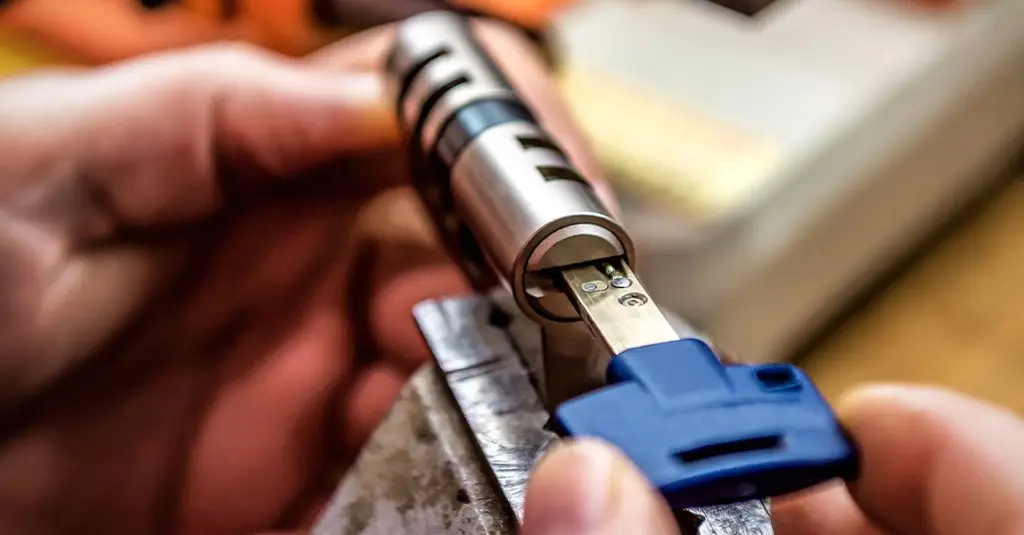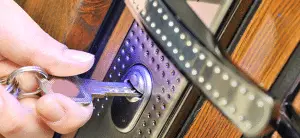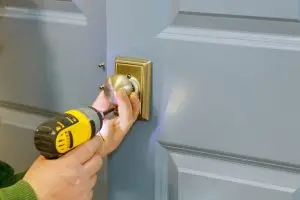Understanding the Needs of Seniors When It Comes to Home Security
Seniors often prioritize safety, simplicity, and reliability in their daily lives. That is to say, when we’re talking about home security, ease of use becomes just as important as protection. Smart locks have become more common in households across Canada. However, the question remains—are they truly a secure and practical choice for older adults?
Firstly, we must consider the physical and cognitive limitations that sometimes come with aging. For instance, arthritis can make turning keys difficult, and memory challenges may lead to misplaced keys. Therefore, a lock system that relies on easy entry methods—such as keypads or mobile apps—can appear to offer some serious benefits.
At the same time, smart locks introduce new challenges. They require digital familiarity and often depend on consistent internet connections or mobile device management. As a result, not all seniors may find these systems to be suitable replacements for traditional locks.
Benefits of Smart Locks for Seniors Living Independently
When seniors live alone, quick and secure access becomes essential. Likewise, the ability to monitor and control home entry remotely provides both peace of mind and practical support. For example, family members can grant temporary access to caregivers without needing to hand over physical keys. That is to say, smart locks allow us to help our loved ones even when we’re not physically present.
Moreover, most smart locks come with features like auto-locking, customizable codes, and real-time notifications. These features not only add convenience but also support security. In the event a senior forgets to lock the door, the system can do it automatically. Consequently, this helps avoid one of the most common home safety risks.
However, ease of use depends on setup and maintenance. A poorly installed lock or overly complex app can make the experience frustrating. Therefore, a reliable lock installation service in Calgary becomes essential when transitioning to these digital devices.
Concerns About Technology Compatibility and Daily Usability
Technology and aging do not always go hand in hand. On the other hand, with the right support and proper selection, smart locks can be adapted to fit into seniors’ routines. But it’s important to note that not all locks work the same. Some models are voice-activated, while others use fingerprint scanners or smartphone integration. In other words, compatibility with a senior’s comfort level is critical.
Our team has encountered cases where a lock’s app was too complicated or the device drained its battery too fast. Most importantly, these aren’t just annoyances—they become real security concerns. If a senior cannot troubleshoot a frozen app or change a battery, they may be locked out or vulnerable.
To avoid such issues, we always recommend locks with physical backup keys or keypad access. Further, any smart lock chosen should allow users to operate it easily, without needing to scroll through advanced settings. The decision should prioritize long-term reliability over high-tech novelty.
Emergency Access and Family Oversight Options
Another strong argument in favor of smart locks is their ability to offer remote access. Family members can check door activity or unlock the door from their phone. Similarly, some smart locks allow for scheduled codes—ideal for nurses or cleaners. Therefore, seniors can maintain their privacy while family still supports them behind the scenes.
We’ve worked with families who manage multiple users with different codes. Each code gives a clear log of entry and exit, which is useful for monitoring care schedules. In some situations, this setup provided essential details in the event of missed appointments or security concerns.
That said, it’s critical to select a lock with strong encryption and up-to-date firmware. Without those protections, remote systems can become vulnerable to cyber threats. That’s one reason we rely on secure options that are carefully installed by professionals. You can start with a reliable provider through a Calgary locksmith services expert and ask detailed questions about smart lock security protocols.
Physical Backup and Power Failure Considerations
Unlike mechanical locks, smart locks run on batteries or home electricity. So, what happens during a power outage? Or if the battery dies and there’s no backup key? These are not hypotheticals. They’re real situations we’ve helped seniors manage, especially during Calgary winters.
To clarify, not all smart locks are created equal. Some have internal battery alerts, while others connect to a broader home security system. Likewise, some come with mechanical key access, which should never be overlooked. We always recommend locks with a manual override feature for emergency use.
Seniors also benefit from clear visual indicators on the lock. For instance, color-coded lights to show lock status or low battery. These simple design elements make a big difference. And if things ever do go wrong, our clients know they can reach out to the right team through a secure contact option that’s always available when they need guidance or urgent help.
Selecting the Right Smart Lock for Aging in Place
We often advise clients not to jump into the most expensive or advanced model. Instead, focus on what fits the senior’s actual lifestyle and needs. For example, some may benefit from voice control while others prefer tactile keypads. As a result, this choice becomes highly personal.
In addition, smart locks that integrate with existing home systems—such as video doorbells or voice assistants—can make the whole home feel safer and more functional. However, we caution against unnecessary integration if it complicates the system. That is to say, simplicity is key when designing a senior-friendly setup.
As Calgary Locksmith Services, we believe in matching people with practical, functional security—not just gadgets. That’s why our team is careful to guide families through real-life use cases, not just product features. Whether it’s a full home upgrade or one smart lock for a side door, every detail matters.
FAQs
What features should seniors look for in a smart lock?
Seniors should focus on smart locks with simple keypads, physical backup keys, long battery life, and easy-to-use apps or no app at all. Features like auto-locking, low battery alerts, and tamper detection are also helpful.
Can a smart lock be hacked?
Yes, like all internet-connected devices, smart locks can be vulnerable if they are not kept updated or if weak passwords are used. Choosing a lock with strong encryption and regular firmware updates helps reduce the risk.
What happens if the battery dies on a smart lock?
Most smart locks will give low battery alerts in advance. However, if the battery dies and there’s no power source, the physical key backup or emergency power options will be needed to unlock the door.
Are smart locks difficult to use for seniors unfamiliar with smartphones?
It depends on the model. Many locks offer keypad-only or fingerprint access, eliminating the need for smartphone interaction. Simpler models are available for those who prefer not to use apps.
Can family members manage the smart lock remotely?
Yes, many smart locks allow family members to create or delete access codes and receive notifications of door activity through their phones. This can provide added peace of mind and help with caregiving.
In conclusion, smart locks can absolutely be a safe option for seniors, provided they are chosen carefully and installed correctly. The right lock balances security with ease of use, allowing seniors to remain independent without compromising safety. For those exploring lock installation services in Calgary, it’s important to work with professionals who understand both the technology and the unique needs of older adults. Our team at Calgary Locksmith Services takes pride in helping families make these decisions with care, reliability, and real-world experience.





